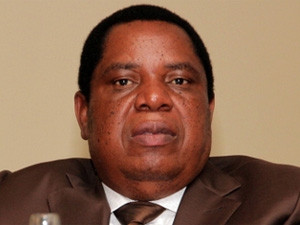
Gijima will today become the latest ICT company to go private as it is set to leave the JSE after 15 years as a listed entity.
The company, which is going private after chairman Robert Gumede's R2.20 per share offer to delist it, via his Guma Group, was accepted by 99.38% of Gijima's shareholders, last traded at R2.17. This was before its voluntary suspension came into effect this month.
Gijima has been the worst performing stock on the JSE over five years, having dropped 89% in value as of the end of April. Over three years, the stock has lost 77%, and - in the past year - it has declined 83%.
In its heyday, in April 2010, its share price reached almost R50, but this was just before the Department of Home Affairs cancelled the multibillion-rand "Who Am I Online" modernisation contract in a surprising letter that stated the deal was "invalid".
Gijima is leaving the bourse without having published its latest results, a failure that irked the JSE and caused it to threaten the ICT company with suspension. However, the JSE's warning was never acted upon because Gijima's shares were voluntarily suspended on 4 May.
The outsourcing firm has recently been through turbulent times, and is more than one-third through yet another three-year turnaround strategy. In the year to June, its latest published figures, it reported turnover lower at R1.5 billion, down from 2013's R1.8 billion, but trimmed its net loss from R294 million to R153 million.
However, the company needed to roll over its R213 million debt, and has entered into a new deal with its financiers, pushing out the due date of the debt into equal tranches due between 2017 and 2020.
Committed to turnaround
Guma increased its stake in Gijima to 88.3% after underwriting a R100 million festive season rights offer, which failed to gain traction from other shareholders, and subsequently offered minorities R2.20 to take the company private.
In a statement to shareholders, the parties have said, as there is such a small free float left listed, and the fact that Gijima's turnaround is ongoing, "Guma believes it is in the best interests of the company to be held 100% by the Guma entities and to delist, thereby enabling it to complete the turnaround in an unlisted environment".
Gumede's Guma has committed to provide the company with operational and financial support as it continues with yet another turnaround strategy. It says this process is going to plan under CEO Eileen Wilton and her management team. It also committed to good governance, it added recently.
Historical difficulties
Among Gijima's other troubles was the cancelled home affairs deal, which weighed on its profit in 2011. During that debacle, the department locked Gijima staff out of its Pretoria headquarters, and the state attorney had to intervene before staff members were let back in.
The following March, Gijima said it had reached a settlement with home affairs after the department canned the "Who Am I Online" contract almost a year earlier. The settlement impacted earnings per share by R27.99c, as Gijima wrote down invoices and absorbed legal costs.
Settling with the department hit the company's profitability as it incurred R375 million in costs, of which R263 million related to home affairs debt that was written off. In addition, the company wrote off another R80 million in future discounts it promised the department, and another R30 million in expenses related to the settlement. In total, this was about a year-and-a-half's worth of profit.
In 2012, the company embarked on a retrenchment exercise, aiming to trim between 8% and 12% of its R1 billion-a-year staff bill through retrenchments because of declining revenue due to lost deals and increasing costs. It recently lost half an Absa deal and a police desktop contract.
In September 2012, then CEO Jonas Bogoshi quit the company, a move followed by the resignation of CFO Carlos Ferreira. Last March, it was announced Gijima's multimillion-rand Vulindlela contract was being investigated as part of a sweeping probe to be launched into contracts awarded by the Department of Rural Development and Land Reform.
That deal led to another legal spat, between it and subcontractor Andrew Scanning Technologies (AST), which eventually resulted in AST being liquidated. AST MD Andrew Anderson claimed Gijima "hijacked" his company after Gijima stepped in to run the contract, claiming AST was not capable. The Vulindlela contract led Gijima to taking a R160 million write-off.
Share